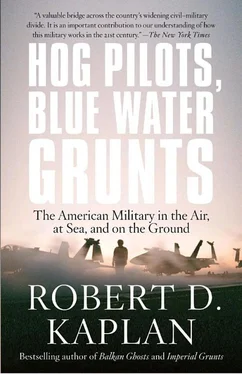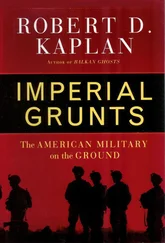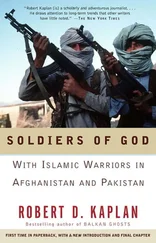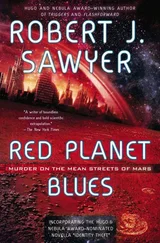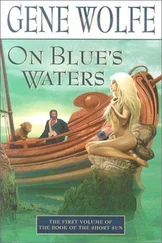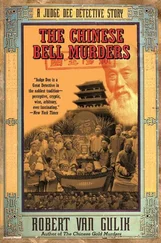Rivera liked the fact that the targets were man-shaped silhouettes rather than concentric circles. “If you’re aiming at a bull’s-eye, you’re being programmed to shoot paper. If you’re aiming at a silhouette, you’re being programmed to kill motherfuckers. 9
“Standing is the most unstable platform for firing a rifle,” he went on. “That’s why fifty yards out is the furthest we will ever shoot standing up. At a hundred yards I’ll drop to the prone in two seconds, but then I’ll methodically put two in his chest so the motherfucker will die before he can find his iron sights. That way I’ll live. And I wanna live because back in America there are a lot of women that love me.” The Nigeriens laughed loudly as Maj. Moussa translated into French.
It was almost eleven. We had been on the range for four hours. The cordite had mixed with the rain to form a mist. “Êtes-vous fatigué comme des demoiselles?” Rivera shouted in disdain. Laughing hard, the Nigerien troops let out a resounding “Non.” Training continued another hour until the break for chow.
“There ain’t nothing I’d rather do than get shot at. But if I can’t shoot or get shot at, just being on the range is heaven,” Rivera told me as we broke out MREs (meals ready to eat).
———
The rain stopped and it was back over 100 degrees. Training resumed for two more hours. Still screaming, Rivera warned: “ Écoutez, tomorrow we’ll do the drills with more magazine changes because you’re still fucking up. Remember, you’re not learning how to shoot, but how to fight when you’re tired and dirty. When you’re tired and dirty and hurting I want you to reach down and grab your balls. To find out what you’re made of.” Everybody laughed. This wasn’t about being mature or sensitive. This was about motivating young African soldiers. It was clear from the way that the Nigeriens smiled at Rivera and walked over to shake his hand that he knew how to do that.
While the Nigeriens scoured the range for the brass cartridges, I hung around one of the pickups with the four marines as we broke out more MREs and water bottles. We were swimming in sweat, our faces caked with dust. The marines asked about Fallujah, where I had been the previous spring. They were frustrated that they weren’t in Iraq, and each had a bureaucratic strategy for getting deployed there, or at least to Afghanistan.
“A marine,” Gunny Coughlin said, “is only happy when he’s fighting, humping with his backpack, or on liberty—spending time with his girlfriend or working under his car.” Coughlin was an unusual gunnery sergeant: less a leader of men than simply the ultimate grunt, quiet and driven, taut and wiry, a human bullet almost. He just wanted to do his job. He complained about the tan boots issued to marines, which were useless for humping because they were nothing but “laced-up flip-flops without shank support.” That led to complaints from the others about the Corps’ decision to retain the M-16 rifle and enhance it with a rail system, rather than get the shorter, lighter, easier-to-handle M-4 that the Army used. Thus, the real bitching commenced: about the media, the naïve home front, and the initial hostility of the U.S. Embassy staff in Niger toward the Marines following the friendliness of the embassy folks in Chad. In short, morale was fine. Off the range, they addressed one another by their first names rather than by last ones preceded by rank.
I rode back with the gunny. “I just love this place,” Coughlin told me happily, eyeing a line of local women walking through the savannah. “I can train, shoot, drive a Toyota pickup, and look at beautiful women.”
The next morning we started again at six. By 7:30 a.m. the sunlight was unbearable, with rotting humidity, no breeze, and no clouds. “Yeah, it’s gonna be good today,” Rivera shrieked, happily. He was like a kid sometimes, never realizing how tired he got screaming in the hot sun, until he collapsed into a deep sleep in the first chair he saw back at the hootch. He showed the Nigeriens how to handle “ beaucoup enemy”:
“You sweep laterally, two bullets—a hammer—in each motherfucker. You never focus on one man, you keep the rifle moving, the weapon never drops to your side.” Twenty-four assault rifles began cracking at once. The Nigerien soldiers spent the day advancing from fifty yards at ten-yard intervals, dropping and replacing their magazines, without taking their eyes off the target. Already they were much better than the day before.
On the third day it rained again. Rivera made them practice jumping flat on their stomachs in the mud to fire in the prone position from three hundred yards. “Set your iron sights at a hundred yards to hit at three hundred yards,” Rivera advised, “because when you close the distance with the enemy to a hundred, you may have no time to readjust.”
While they were firing, Steve Long pointed to one soldier whose shots, he said, were to the left of the target. “How can you tell?” I asked. The paper silhouettes were specks from this distance. “I can follow the individual bullets downrange. It’s a trick your eye picks up after spending eight hours a day at the range for two years at Parris Island.” Walking up to inspect the silhouettes later, he turned out to be right.
———
In the heat of the day, standing for hours just inches behind the line of soldiers firing their rifles, I would get bored and wander to the shade of the ready bench, take out my earplugs, and sit down. Sometimes I talked with 1st Lt. Timothy Dekryger of Mount Pleasant, Michigan, Maj. Baker’s executive officer, who came out to inspect the training and enjoy the company of Bobby Rivera’s gang. First Lt. Dekryger was an original: tattoos over his body even as he was an addict of classical string quartets. His dad and uncle had been marines, and two weeks after finishing high school with a D average—having majored in “beer, girls, and hunting”—he enlisted. Before he was twenty years old, Dekryger found himself on a fleet deployment in Malaysia, staring at “sharp, tropical mountains falling straight into a blue sea as smooth as glass with vapor rising from it. I wished I could paint,” he went on. “That scene gets more intense in my mind as I get older.”
Lt. Dekryger left the Corps to study philosophy at Calvin College, a little-known gem of an institution of the Dutch Reformed Church in Grand Rapids, Michigan. Then he went to Officer Candidate School, becoming the commander of a tank platoon in time for Operation Iraqi Freedom. “In Iraq I had to order grunts to do things that were technically difficult and could get them killed. I found myself preparing in advance what I would say to inspire them. I realized how inadequate I was. That’s why I love and respect the Riveras of this world,” he continued in a low, intense voice. “They’re profane as hell, but they know how to motivate. If I had to leave the combat arms community and people like Rivera, I’d leave the Marine Corps.”
Dekryger showed me the book he was reading, Tarawa: The Story of a Battle by Time-Life correspondent Robert Sherrod. He said that he found the book inspiring. Leafing through it, and reading it carefully at night in the hootch, I discovered that it was like other books popular among marines and soldiers, but which the contemporary media, aside from the military correspondents, were barely aware of. No potboiler, Tarawa was just an old-fashioned sort of book, very much in the tradition of great war reporting as defined by Richard Tregaskis in Guadalcanal Diary, Bing West in The Village, and Harold Moore and Joe Galloway in We Were Soldiers Once…and Young. These books celebrate the sacrifice and heroism of American troops in World War II and Vietnam not because it had been the authors’ intention, but because it was true and happened to be all around them. 10
Читать дальше
